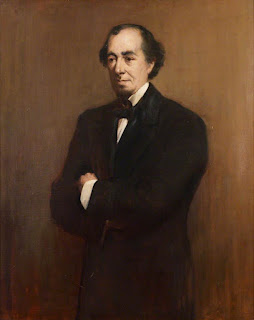Benjamin Disraeli: The Colorful Statesman Who Shaped Victorian Britain
In the pantheon of British politics, few figures shine as brightly as Benjamin Disraeli, a man whose legacy is as vivid as the colorful life he led. Born on December 21, 1804, in London, Disraeli's story is a tapestry woven with the threads of brilliance, ambition, and resilience. His Jewish heritage, unique in the annals of British political history, made him an outsider. Yet, he transformed this potential barrier into a stepping stone to the zenith of political power through sheer force of personality and intellect.
Disraeli's early life was steeped in the rich hues of literature and culture. Baptized into the Anglican Church at age 12, he bridged the worlds of Jewish ancestry and Christian society. His literary career, blooming in his twenties, painted vivid portraits of Victorian society. His novels, such as "Coningsby" and "Sybil," were not mere stories but mirrors held up to society, reflecting its complexities and disparities with a writer’s keen eye.
The leap from literature to politics was a natural progression for Disraeli. He entered Parliament in 1837, his oratory sparkling with wit and wisdom. In the grand theatre of politics, he was both a playwright and actor, captivating audiences with his eloquence. His rise within the Conservative Party was marked by setbacks and triumphs, illustrating his remarkable tenacity.
As Prime Minister, a role he held twice – briefly in 1868 and then from 1874 to 1880, Disraeli's palette was one of progressive conservatism. He championed social reform, sowing the seeds of the modern welfare state. His foreign policy was a masterstroke of diplomacy and expansion, most notably in the acquisition of the Suez Canal, a jewel in the crown of the British Empire.
Disraeli's legacy is painted in broad strokes of reform and empire, yet it is detailed with the finer lines of his personal charm and literary genius. When he passed away on April 19, 1881, Britain lost a politician and a colorful character who left an indelible mark on the nation's history.
In every sense, Benjamin Disraeli was a man of contrasts – a novelist turned statesman, an outsider who became the heart of the British establishment. His life, rich in color and filled with achievements, remains a beacon of inspiration, reminding us that history is not just a sequence of events but a canvas of extraordinary lives.



Comments
Post a Comment